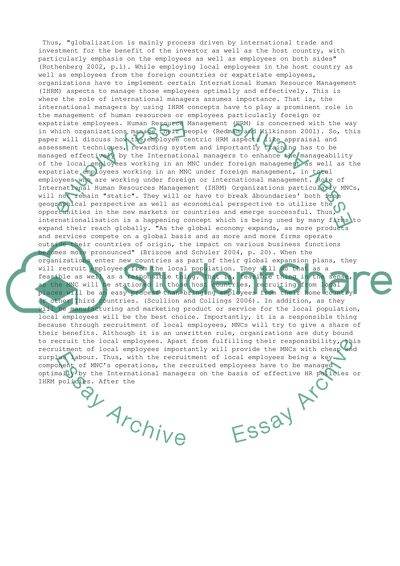Cite this document
(“Major HR issues and International managers Essay”, n.d.)
Retrieved from https://studentshare.org/management/1393413-human-resource
Retrieved from https://studentshare.org/management/1393413-human-resource
(Major HR Issues and International Managers Essay)
https://studentshare.org/management/1393413-human-resource.
https://studentshare.org/management/1393413-human-resource.
“Major HR Issues and International Managers Essay”, n.d. https://studentshare.org/management/1393413-human-resource.


